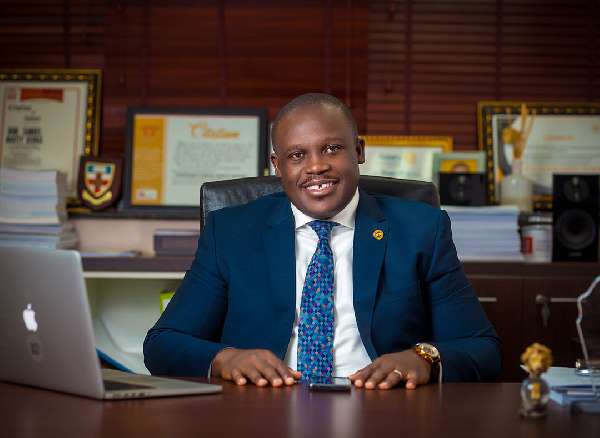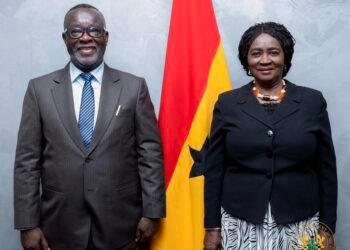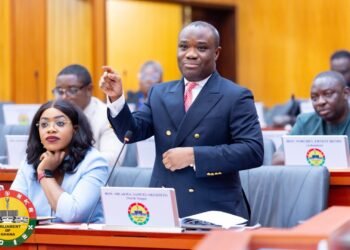Ghana, a beacon of democracy in West Africa, is currently battling with the complexities of legislative processes, particularly concerning the Private Member Bill—an avenue for individual members of parliament to propose legislation.
As the nation seeks to enhance its legal framework, the Private Member Bill has become a focal point, allowing for diverse perspectives to be considered. However, the journey from proposal to implementation faces considerable challenges, further complicated by the current discourse surrounding an Anti-LGBTQ+ Bill pushed by Samuel Nartey George, MP for Ningo-Prampram and the recent Witchcraft Bill shot down by the President.
The Private Member Bill in Ghana empowers individual parliamentarians to contribute to the legislative agenda, fostering inclusive and addressing issues that may not be prioritized by the executive. Samuel Nartey George, a prominent advocate for legislative action on LGBTQ+ issues, has underscored the importance of private members actively participating in shaping the legal landscape.
Crafting a Private Member Bill demands meticulous research and drafting to present a compelling case for proposed legislation. Samuel Nartey George’s push for an Anti-LGBTQ+ Bill has exemplified the challenges faced by private members, particularly in garnering support for bills that may be polarizing or face opposition from certain quarters particularly from the executive.

While navigating legislative hurdles is a significant accomplishment, the journey for Private Member Bills doesn’t end there. The critical challenge lies in securing the executive assent of the president, a challenge compounded by the polarized nature of issues such as LGBTQ+ rights.
Samuel Nartey George, MP for Ningo Prampram, as brought another layer to the discussion by challenging the President’s perceived overreach in decision-making. He argued that the president’s actions, especially in the context of the Anti-LGBTQ+ Bill, usurp powers designated to the speaker of parliament, as outlined in Article 108 of the constitution. Expressing concern over the concentration of power in the executive, George contends that parliament should take the president to court for a clear interpretation of the constitutional provisions.
Article 108 of Ghana’s constitution explicitly outlines the limits of parliamentary actions without presidential involvement. Samuel Nartey George highlights that the determination of financial implications, a key factor in the president’s assent decision, is vested in the person presiding, who is the speaker of parliament. George argued that the framers of the constitution never intended for the president to play a role in this determination, especially for bills that do not involve taxation or financial matters.
“Parliament shall not, unless the bill is introduced or the motion is introduced by, or on behalf of, the President— (a) proceed upon a bill including an amendment to a bill, that, in the opinion of the person presiding, makes provision for any of the following— (i) the imposition of taxation or the alteration of taxation otherwise than by reduction; or (ii) the imposition of a charge on the Consolidated Fund or other public funds of Ghana or the alteration of any such charge otherwise than by reduction; or (iii) the payment, issue or withdrawal from the Consolidated Fund or other public funds of Ghana of any moneys not charged on the Consolidated Fund or any increase in the amount of that payment, issue or withdrawal; or (iv) the composition or remission of any debt due to the Government of Ghana;”
Article 108, Constitution of Ghana
Samuel Nartey George emphasized the potential absurdity of interpreting the constitution in a way that restricts private members’ bills from impacting matters such as criminal prosecution or incarceration. He advocated for clarity from the judiciary, asserting that the framers of the constitution did not intend to limit the scope of private members’ bills in such a way.

“We can’t sit down and allow that so I believe if the President doesn’t rescind his decision, Parliament should take him to court. We should take him to the supreme court for the court to rule because article 108 is clear. It put the prerogative for determining the financial implication not on the president (rather) on the person presiding who is the speaker.”
Samuel Nartey George
The unfolding events underscore the importance of institutional checks and balances, and the judiciary’s role in interpreting constitutional matters to ensure the effective functioning of Ghana’s democratic system.
READ ALSO: Sponsor Of Anti-LGBTQ+ Bill Decries Parliament’s ‘Deliberate’ Delay























